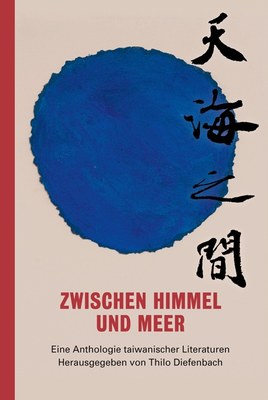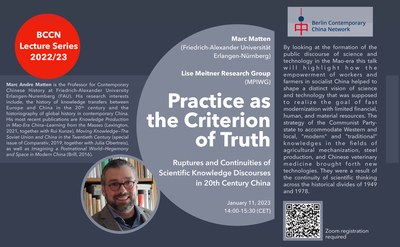Neuigkeiten
17.01.2023 Buchvorstellung Dr. Thilo Diefenbach: "Zwischen Himmel und Meer". Eine Anthologie taiwanischer Literaturen
- https://www.iaaw.hu-berlin.de/de/ostasien/neuigkeiten/aktuelle-termine/17-01-2023-buchvorstellung-dr-thilo-diefenbach-wischen-himmel-und-meer-eine-anthologie-taiwanischer-literaturen
- 17.01.2023 Buchvorstellung Dr. Thilo Diefenbach: "Zwischen Himmel und Meer". Eine Anthologie taiwanischer Literaturen
- 2023-01-17T18:00:00+01:00
- 2023-01-17T20:00:00+01:00
- Wann 17.01.2023 von 18:00 bis 20:00
- Wo Raum 201, Johannisstraße 10, 10117 Berlin
- Name des Kontakts Prof. Henning Klöter
-
iCal
Am Dienstag, den 17.01.2023 um 18.00 Uhr wird Dr. Thilo Diefenbach im Seminarraum 201 des Seminars für Ostasienstudien in der Johannisstraße 10 sein Buch "Zwischen Himmel und Meer: Eine Anthologie taiwanischer Literaturen" vorstellen.
Erstmalig liegt nun in einer westlichen Sprache ein chronologisch geordnetes Kompendium der taiwanischen Literatur vor, das die unterschiedlichen sprachlichen und kulturellen Einflüsse berücksichtigt, denen Taiwan im Laufe seiner Geschichte ausgesetzt war, und das einen völlig neuen Zugang zur taiwanischen Literatur bietet.Alle Interessent:innen sind herzlich willkommen!
11.01.2023 BCCN Lecture: Practices as the Criterion of Truth: Ruptures and Continuities of Scientific Knowledge Discourses in 20th Century by Marc Matten
- https://www.iaaw.hu-berlin.de/de/ostasien/neuigkeiten/aktuelle-termine/11-01-2023-bccn-lecture-practices-as-the-criterion-of-truth-ruptures-and-continuities-of-scientific-knowledge-discourses-in-20th-century-by-marc-matten
- 11.01.2023 BCCN Lecture: Practices as the Criterion of Truth: Ruptures and Continuities of Scientific Knowledge Discourses in 20th Century by Marc Matten
- 2023-01-11T14:00:00+01:00
- 2023-01-11T15:30:00+01:00
- Wann 11.01.2023 von 14:00 bis 15:30
- Name des Kontakts Sarah Eaton
-
iCal
Dear students and colleagues,
We cordially invite you to join lecture #4 of the BCCN Online Lecture Series 2022/23 "China – The New Science Superpower?":
Practices as the Criterion of Truth: Ruptures and Continuities of Scientific Knowledge Discourses in 20th Century
Speaker: Marc Matten, Friedrich-Alexander Universität, Erlangen-Nürnberg
Online via Zoom. Please register for the event here: https://zoom.us/j/99516596246?pwd=b0Y3akFwN3FEejRZUTFGZ3ZQNWg2UT09
By looking at the formation of the public discourse of science and technology in the Mao-era this talk will highlight how the empowerment of workers and farmers in socialist China helped to shape a distinct vision of science and technology that was supposed to realize the goal of fast modernization with limited financial, human, and material resources. The strategy of the Communist Party-state to accommodate Western and local, "modern" and "traditional" knowledges in the fields of agricultural mechanization, steel production, and Chinese veterinary medicine brought forth new technologies. They were a result of the continuity of scientific thinking across the historical divides of 1949 and 1978.
Marc Andre Matten is the Professor for Contemporary Chinese History at Friedrich-Alexander University Erlangen-Nuremberg (FAU). His research interests include, the history of knowledge transfers between Europe and China in the 20th century and the historiography of global history in contemporary China. His most recent publications are Knowledge Production in Mao-Era China—Learning from the Masses (Lexington, 2021, together with Rui Kunze), Moving Knowledge—The Soviet Union and China in the Twentieth Century (special issue of Comparativ, 2019, together with Julia Obertreis), as well as Imagining a Postnational World—Hegemony and Space in Modern China (Brill, 2016).
Spread the word and register for more lectures in this series on our BCCN-website
Portrait des Seminars für Ostasienstudien in CHINAHIRN
Wolfgang Hirn, Herausgeber des Newsletters CHINAHIRN, hat das Seminar für Ostasienstudien in seiner neuesten Ausgabe portraitiert. Der Fokus liegt auf China. Der Beitrag ist nachzulesen in der Rubrik "Wer macht was"?
Interview von Daniel Fuchs zur Einordnung und den Auswirkungen der Proteste in China
Daniel Fuchs; Interview
Daniel Fuchs gab der HU-Presseabteilung ein Interview zur Einordnung und den Auswirkungen der jüngsten Proteste in China. Das Interview ist auf der HU Homepage nachzulesen.
30.11.2022 BCCN Roundtable on the current protests in China
- https://www.iaaw.hu-berlin.de/de/ostasien/neuigkeiten/aktuelles_archiv/30-11-2022-bccn-roundtable-on-the-current-protests-in-china
- 30.11.2022 BCCN Roundtable on the current protests in China
- 2022-11-30T14:00:00+01:00
- 2022-11-30T15:30:00+01:00
- Wann 30.11.2022 von 14:00 bis 15:30
- Wo Online via Zoom
- Name des Kontakts Dr. Daniel Fuchs
-
iCal
Dear students and colleagues,
In China, protests against the government and its strict Corona policy continue. What's more, they have now spread to smaller towns as well.
We have therefore prepared an online BCCN roundtable at short notice to discuss the situation with experts.
Wednesday, Nov. 30, 2022
14:00-15:30 CET
Online via Zoom (registration required)
https://hu-berlin.zoom.us/meeting/register/u5Atde-gqDktGNQ7F8-KpA-qWXN7bihDBxAz
Participating are:
Anna Lisa Ahlers (Max Planck Institute for the History of Science)
Daniel Fuchs (Humboldt University of Berlin)
Christoph Steinhardt (University of Vienna)
The discussion will be moderated by Genia Kostka (Freie Universität Berlin).
Spread the word and check for more events on our BCCN-website.




